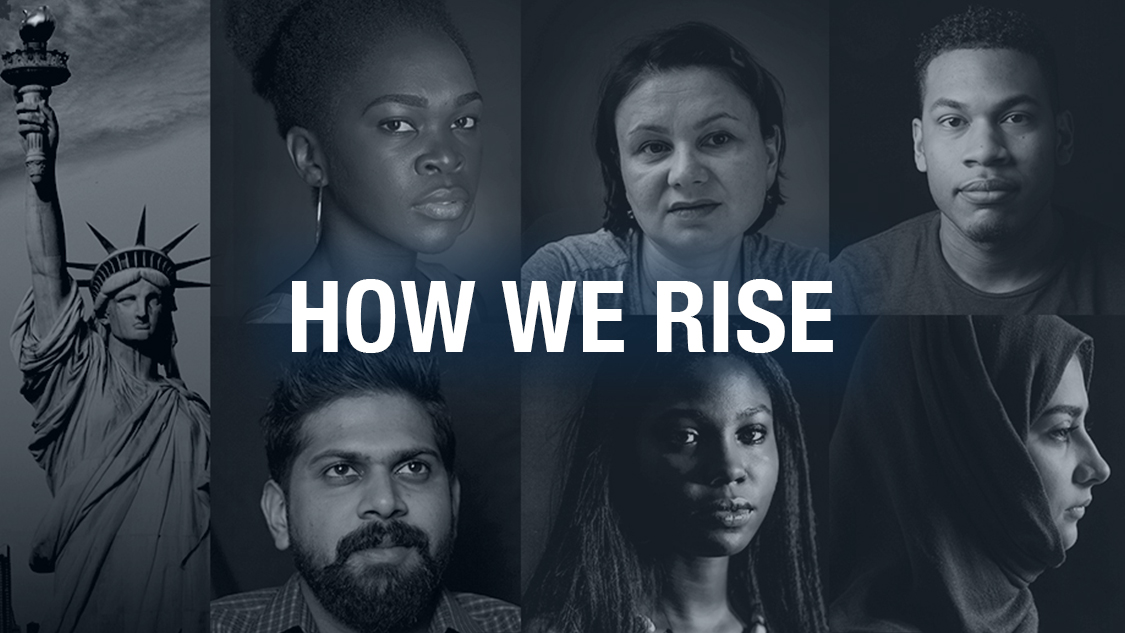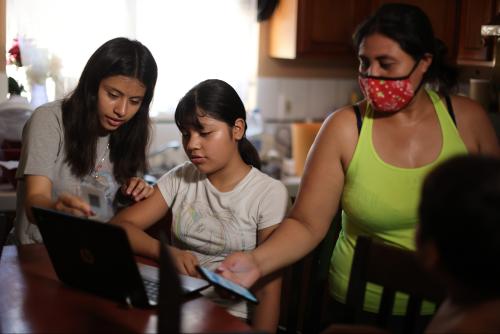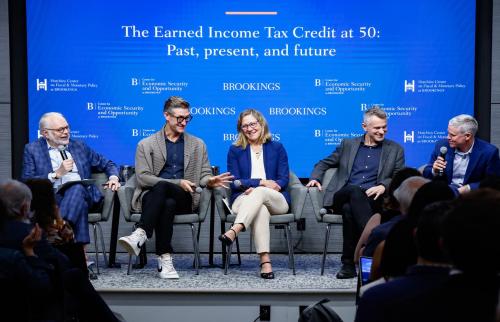In Baltimore, where vibrant communities coexist with systemic disparities, a glimmer of hope emerges through social entrepreneurship and impact investing. As the CEO of Innovation Works, I have witnessed the immense potential of these forces to address the racial wealth gap in Baltimore City and catalyze transformative change in underserved neighborhoods.
Like many other urban centers across the United States, Baltimore City grapples with deep-rooted racial inequalities that have persistently stifled economic opportunities for communities of color. Generations of systemic barriers have hindered talented individuals’ entrepreneurial ambitions and stifled local businesses’ growth. In this ongoing fight against such entrenched disparities, social entrepreneurship and impact investing are proving to be powerful allies, illuminating a path toward a more equitable future.
Initially, Innovation Works focused on private sector and philanthropic support rather than relying on public sector resources. Recently, we began to engage more with the public sector. This strategic shift aligns with Baltimore City’s recent policy efforts, notably Mayor Brandon Scott’s allocation of ARPA funds to support small businesses during the COVID-19 pandemic. The Baltimore Development Corporation (BDC) was crucial in distributing $11.7 million of these funds, focusing on local, small businesses, especially those owned by Black, Brown, and women entrepreneurs. This new phase in Innovation Works’ strategy marks a deeper engagement with community impact initiatives and leveraging public sector resources.
At Innovation Works, we believe that financial access is a key driver of sustainable change. Our commitment to supporting the almost 200 social entrepreneurs under our care extends beyond providing access to capital. We understand that true transformation requires holistic support, comprehensive resources, and a nurturing ecosystem that cultivates innovation and resilience. One of our flagship initiatives, the accelerator program, lies at the heart of this mission. Through this intensive program, we equip social entrepreneurs with the knowledge, skills, and relationship capital to grow their enterprises successfully and sustainably. Our curriculum is designed to address the specific needs of entrepreneurs from diverse backgrounds, recognizing that tailored guidance is essential to surmounting unique challenges.
However, mentorship is equally vital to an entrepreneur’s journey. That’s why we have cultivated an executive mentorship network comprising over 100 seasoned industry experts. These mentors provide invaluable guidance and support, enabling entrepreneurs to navigate the complexities of the business landscape confidently. The mentorship relationships fostered within this network extend beyond business acumen, as mentors also bring their social capital and companionship to ensure entrepreneurs thrive personally and professionally.
But financial sustainability is the bedrock upon which lasting change is built. Many entrepreneurs, particularly those from marginalized communities, face significant barriers to accessing capital. Recognizing this, we established Ignite Capital, our impact investing subsidiary. Ignite Capital works to break down these barriers by providing entrepreneurs access to much-needed capital to launch and grow their visions.
Through Ignite Capital, we offer patient, individualized, and below-market-rate capital. We follow capital with continued friendship, mentorship, and support. This mission-first investment approach emphasizes investing in people and places and expecting moderate financial returns. By supporting enterprises that serve their communities and address pressing social issues, we are making conscious strides toward narrowing the racial wealth gap.
The stories of the entrepreneurs we support illustrate the transformative potential of this approach. Prioritizing local entrepreneurs who have chosen to use their talents to serve their neighbors and city is a worthy investment. These enterprises are thriving, creating jobs, and driving positive change in Baltimore. The social impact creates a ripple effect; entrepreneurs build a vision while growing their family wealth, create new livable wage jobs, and employ local residents. They root their enterprises in historically Black communities. The growth in entrepreneurial activity inspires others, and more and more residents tap into their personal agencies to explore their entrepreneurial visions.
However, we cannot ignore the structural barriers that persist or underestimate the enormity of our challenges. While social entrepreneurship and impact investing represent a powerful duo in the fight against the racial wealth gap, they must be complemented by broader systemic changes.
In the pursuit of a thriving Baltimore, I encourage policymakers, philanthropists, corporate leaders, and influential individuals to embrace a holistic approach. This entails fostering greater collaboration, fostering innovation, and committing to the cause of social and economic justice. By working closely with social entrepreneurs and adopting their inventive strategies, we can generate a synergy beyond simple impact, aiming for enduring and significant transformation. Let us unite in pursuing a “greater” objective, promoting human dignity, equality, and sustainable progress for a just and economically inclusive future.
As we progress, inspired by the transformative power of social entrepreneurship and impact investing, our vision is for Baltimore City to emerge as a model of progress, shedding the weight of inequality and lighting the way to a prosperous future for all residents. The public sector has historically relied heavily on CDFIs and MDIs as primary modalities for expanded capital access. However, over the last two decades, the field has broadened significantly, with other frameworks for alternative financing and mission-based financing. These newer frameworks are filling gaps in the financial markets by shedding historical barriers to capital and designing more creative financing tools. It is critical that the public sector acknowledges this expansive umbrella by shifting its language, policies, and initiatives to allow for more access to public funds intended to facilitate investing in businesses operating in low-income communities, moving away from rigid, one-size-fits-all models.
Fostering collaborative partnerships between the public sector and mission-based lenders is crucial for sharing knowledge, innovating solutions, and collectively enhancing the impact of mission-based lending in underserved communities. Additionally, promoting transparency and accountability in public-supported investment initiatives is imperative. Establishing a framework for mandatory reporting on the impact of public investments, including more specific geographic, demographic, and economic metrics of the business recipients of lending activities, is equally important.
To move forward, we call on cities and communities to embrace these principles, fostering environments where mission-based lending can thrive and contribute significantly to the economic empowerment of underserved areas. This approach champions financial inclusion and paves the way for a more equitable and inclusive future.
The Brookings Institution is committed to quality, independence, and impact.
We are supported by a diverse array of funders. In line with our values and policies, each Brookings publication represents the sole views of its author(s).








Commentary
Innovation Works: Fostering racial equity through social entrepreneurship and impact investing in Baltimore
November 21, 2023